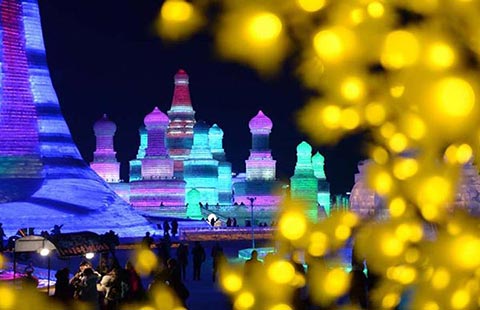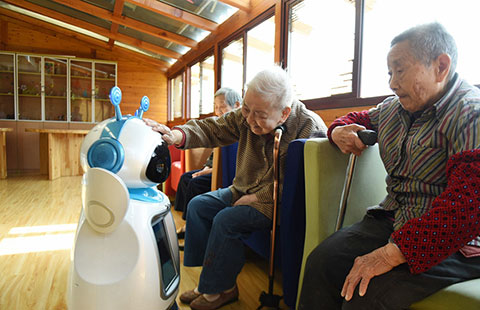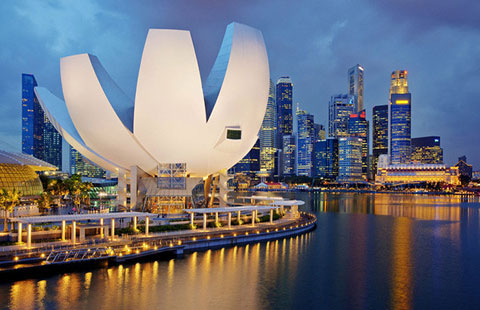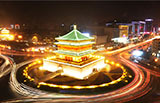West China is ready to zoom around in new-age 'luxury' autos
By DU JUAN Updated: 2016-05-23 07:50
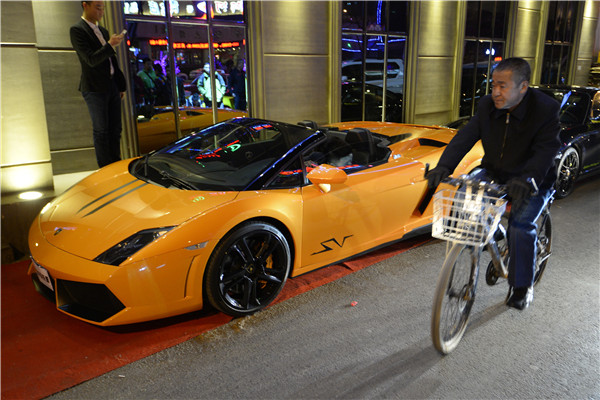 |
|
The high level of purchasing power of some consumers in China's western provinces is giving hope to makers of luxury cars who have been otherwise experiencing challenges, in the form of low sales growth and obstacles to their "Go West" strategy. |
Earlier this month, Cao Weida, a sales assistant of Sunfonda Group Holdings, the second-largest dealer in luxury and ultra-luxury cars in northwestern China, almost lost his voice. He had near incessant interactions with prospective car buyers and visitors at the seven-day auto show in Xi'an where he manned the Mercedes-Benz stand.
"I talked to countless visitors," he said. "People have growing enthusiasm for luxury brands such as Mercedes-Benz and BMW AG."
The high level of purchasing power of some consumers in China's western provinces is giving hope to makers of luxury cars who have been otherwise experiencing challenges, in the form of low sales growth and obstacles to their "Go West" strategy.
Cao said many luxury brands have launched more models with lower prices, ranging between 250,000 yuan and 350,000 yuan. A growing number of young people are considering buying a Mercedes-Benz, a BMW or an Audi as their first car, to make their dreams come true.
"Thanks to the special discounts during the auto show, you could have bought an Audi A1 with around 150,000 yuan, which is far from 'luxury' as per our definition, but it is happening," Cao said.
According to the expo organizers, the seven-day Xi'an auto show attracted 418,000 visitors and helped sell 14,219 cars for more than 4 billion yuan, 1 billion yuan more than the sales revenue from a similar exhibition last July.
Clearly, West China loves luxury cars. Of course, the location of Xi'an at the heart of West China helped attract visitors from neighboring provinces and autonomous regions such as Sichuan, Shanxi and Inner Mongolia.
Record sales at Xi'an came in spite of another auto show being held at the same time in the northwestern city of Yinchuan in Ningxia Hui autonomous region.
According to the organizers of the four-day Yinchuan show, there were 220,000 visitors, and 2,309 vehicles were sold for 345 million yuan.
Liu Jiazhen, marketing director at Ningxia Jinrunbao Auto Sales Service Co, a major local dealer of BMW, said the auto industry still sees good potential in West China. The company will likely invest in more sales centers in the region.
She said a new BMW sales store will open in Yinchuan this year.
In addition to popular Mercedes-Benz, BMW and Audi which are well accepted by Chinese buyers, Lincoln Motor Co, a traditional luxury brand from the US, is doing well. It reentered China in 2014, seeing the country's booming demand for cars.
After setting up stores in first-tier cities like Beijing, Shanghai and Guangzhou, Lincoln opened a new store in Xi'an, the first one in West China, in January.
Tian Jing, executive vice general manager of Xi'an Haolin Lincoln Store, said the company has confidence that car buyers in the western region will bring more revenue for Lincoln.
"We are not eager to sell our cars. Instead, we are promoting a way of life that knows the essence of 'luxury' in western China," she said. "In the past, people had an impression that luxury car owners in western China are only rich but have no taste. It's not true. As long as we provide high-end services for them, they can be influenced."
From the perspective of Cao the sales assistant, only brands such as Aston Martin can be called luxury brands. Stated differently, he does not regard BMW and Audi as luxury car brands anymore.
For, some luxury car brands are less and less "luxury" due to their launch of models targeted at young and middle-class consumers. And the "real luxury" or ultra-luxury car segment in West China has gone cold, savaged by the commodities' price drop, which has severely affected incomes of the rich in the region.
Prospective buyers of luxury cars in the region are those who had built their fortunes on soaring demand for mining resources like coal, oil and natural gas. But their wealth has shrunk in recent years because of coal mines' bankruptcy due to falling prices and weak demand.
Guo Shaoyu in Yinchuan contributed to this story.
- $1.8b online live show market faces homogeneity competition
- Zhongguancun Science Park spearheading capital's high-tech innovation
- Guangzhou OED Tech develops 'world's first graphene e-paper'
- Vipshop profits from strong customer support
- China-made graphene bulb to debut in UK
- Beijing AI startup SenseTime pioneers deep learning tech
- China Three Gorges seeks investors
- China Shipbuilding changes course to high-end specialist vessels
